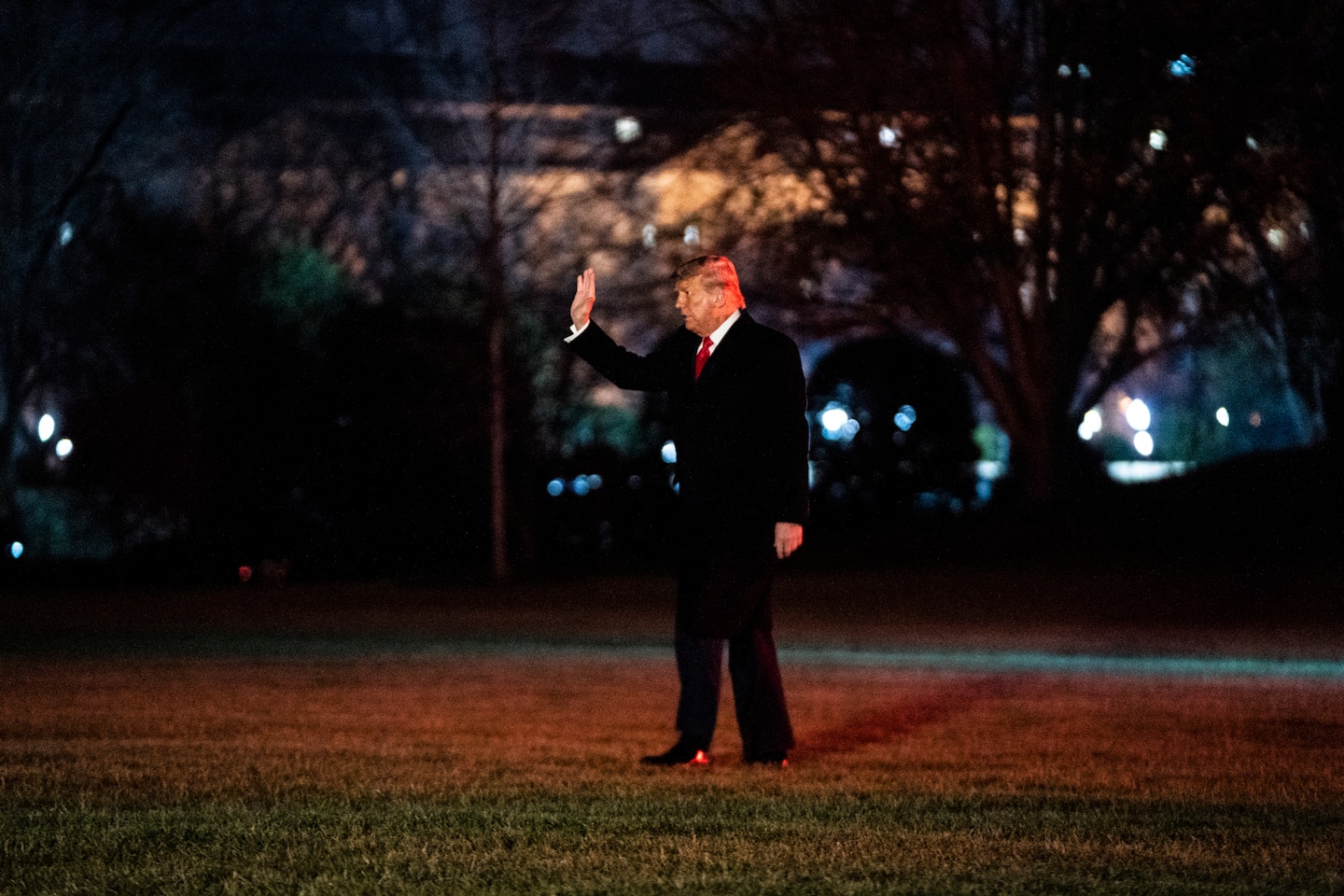Trump is understandably tempted to pardon himself. It won’t work.

The constitutional part is straightforward. Because the rule of law requires that no official should be a judge in his own case, the Justice Department’s Office of Legal Counsel advised President Richard M. Nixon in 1974 that his constitutional “Power to grant Reprieves and Pardons” did not extend to a self-pardon. Scholars concede that there is room for debate, because the Framers adopted the broadly phrased Pardon Clause against a historical background where the concept of self-pardons had never been considered.
But most agree with the Office of Legal Counsel opinion, as do I. The original meaning of granting a pardon assumes someone granting the pardon who is distinct from the person receiving it. So does the original purpose of a pardon, namely, forgiveness bestowed by an authority on a rule-breaker. Though a priest may pardon sinners, he may not absolve himself.
Self-pardons are also inconsistent with the president’s fiduciary responsibilities, reflected in his Article II, Section 3 obligation to “take Care that the Laws be faithfully executed.” Article I, Section 3, Clause 7 provides that anyone convicted after impeachment may be “subject to Indictment, Trial, Judgment and Punishment, according to Law.” The president’s power to exempt himself from prosecution for impeachable offenses would clash with Clause 7. Indeed, the Pardon Clause does not, by its terms, apply “in Cases of Impeachment.”
A self-pardon would also be a strategic blunder on Trump’s part. Such a flagrant attempt to evade responsibility would make it more likely the Justice Department would prosecute him. Before filing charges, prosecutors consider not just evidence of culpability, but also the message they are sending and the precedent a successful prosecution would create.
The department strongly believes the president cannot self-pardon, and the perfect case to present that position to the Supreme Court would be one where the self-pardoner encouraged insurrection. Even the conservative Roberts Court would be reluctant to permit an evasion of accountability by someone who proclaimed in 2016 that he could shoot a man on Fifth Avenue without losing votes and whose lawyer told a federal appeals court in 2019 that, while president, Trump would be immune from the murder prosecution.
Moreover, if the department or the court acquiesced in Trump’s self-pardon, it would not protect him in the long run. As is now well understood, the pardon power does not extend to crimes under state and local law. The Manhattan district attorney who sought Trump’s tax returns is already investigating him for a raft of state crimes including tax and insurance fraud and falsification of documents. Georgia makes it a crime for anyone who “solicits, requests, commands, importunes or otherwise attempts to cause the other person to engage” in election fraud [Ga. Code § 21-2-604], as Trump arguably did in recorded phone calls to state officials. Virginia’s felony law punishes anyone who “conspires with others to cause or produce a riot, or directs, incites, or solicits other persons who participate in a riot to acts of force or violence.” Trump could, under some circumstances, be prosecuted in Virginia for inciting or conspiring with its citizens to join the insurrection.
The pardon power also does not extend to future crimes. In ex parte Garland (1866), the Supreme Court interpreted the Pardon Clause to apply to forgive the grantee for a crime “at any time after its commission.” Thus, under a self-pardon, Trump could still be prosecuted not only for state crimes, but for any federal crime committed after the pardon. Consequently, any post-pardon efforts by Trump, such as lying under oath or tampering with evidence to cover up his involvement in the insurrection, could be prosecuted as obstruction of justice.
Pardoning himself could also enmesh Trump in a series of legal encounters that would not end well. Federal prosecutors could compel Trump to testify at the trials of accused insurrectionists or conspirators. Given his track record of compulsive lying, Trump would seem to run a serious risk of committing perjury. Even if he tried to stonewall, he might find it hard to invoke the Fifth Amendment, because a self-pardon would remove his ability to assert the risk of self-incrimination for federal crimes. (State prosecutors could promise immunity for particular state crimes.)
For all his bluster and demagoguery, Trump can no longer put himself above the law.
Sic semper tyrannis.
Read more:






